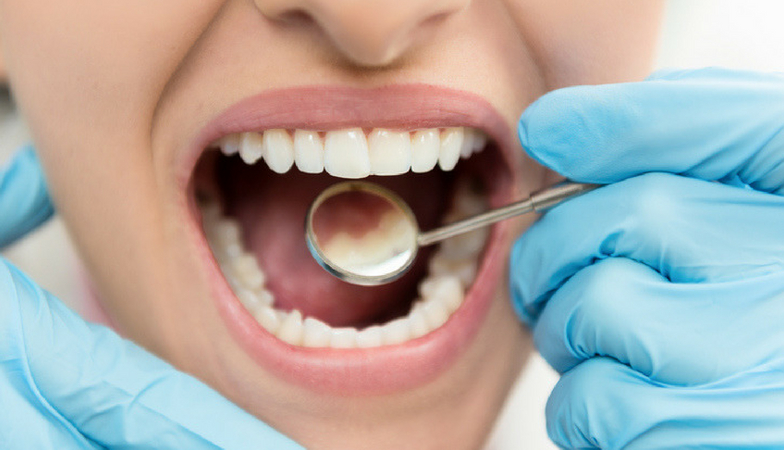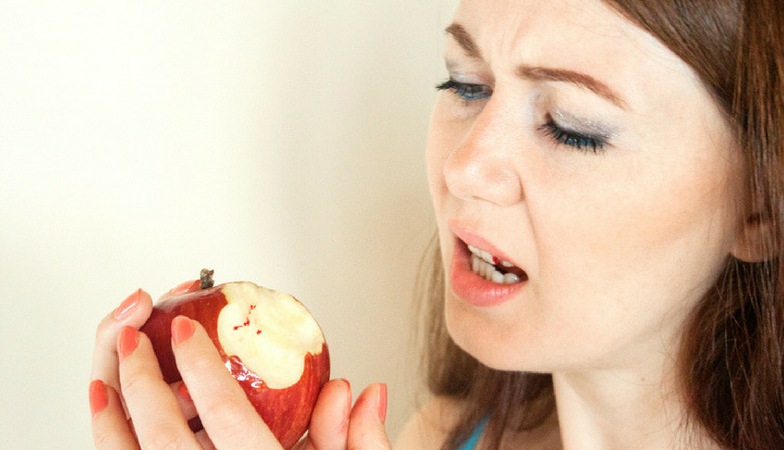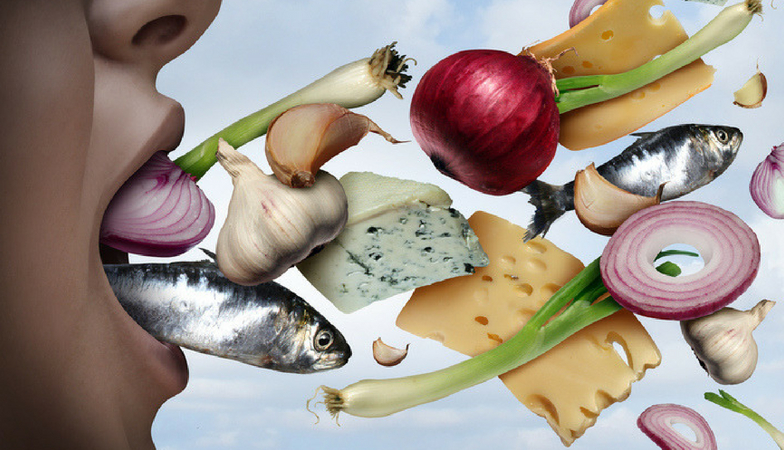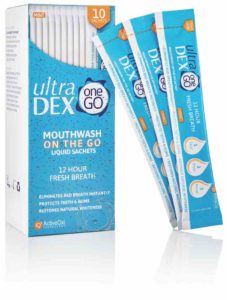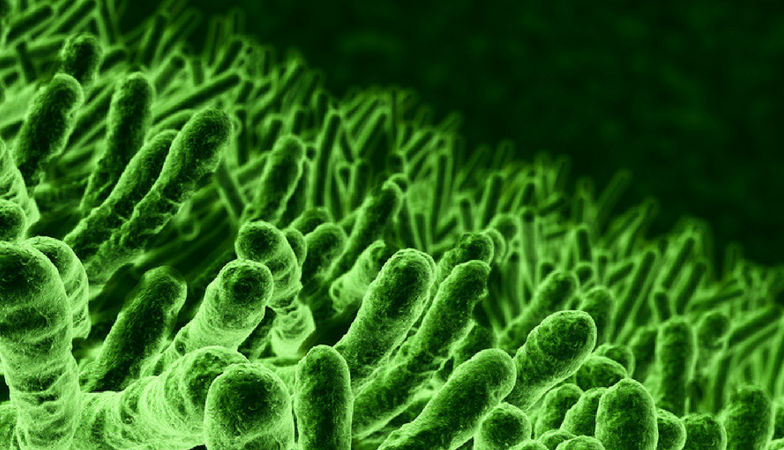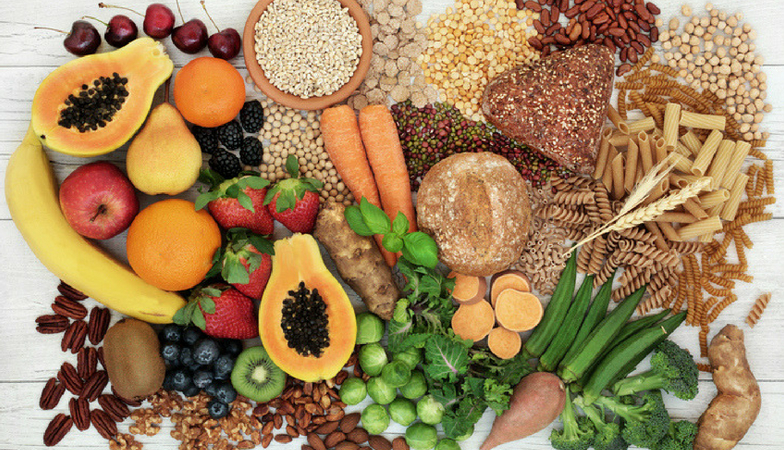A new study has found three quarters of us consider bad breath a huge confidence knock. This dentist’s guide to fixing the causes will make you more popular
If you’re like many of us, you probably worry about bad breath. In fact, new research has found that 75 per cent of people admitted that just thinking they had bad breath knocked their confidence.
Dr Mervyn Druian, a leading London dentist says, ‘The impact of an evolving lifestyle and diet means we need to adjust our oral hygiene routine.’
A staggering 95 million cups of coffee are drunk each day, and that adds up to an awful lot of unpleasant stale-coffee breaths!
The survey by OnePoll, commissioned by Ultradex also found that two out of three people admitted to having to turn away from someone else’s unpleasant breath at least once a week and just under half of those asked admitted to having brad breath. Ew.
It’s no surprise though, as a 2013 study published in the Journal of Natural Science, Biology and Medicine reported a staggering 50 per cent of the general public have halitosis or persistent bad breath.
There is a simple test that you can do, says the British Dental Foundation. Just lick the inside of your wrist, wait ten seconds and sniff – if the smell is bad, you can be fairly sure that your breath is too.
You have cavities
Persistent bad breath is usually caused by the smelly gases released by the bacteria that coat your teeth, gums and tongue.
Also, bits of food that get caught between the teeth and on the tongue will rot and can sometimes cause an unpleasant smell.
The bacteria on our teeth and gums (called ‘plaque’) also cause gum disease and one of the warning signs of gum disease is that you always have bad breath or a bad taste in your mouth.
Tooth decay has the same effect – in fact, the 2013 study found that 90 per cent of halitosis cases were caused by cavities in the mouth.
Regular dental check-ups, brushing and flossing twice daily can help get rid of the bacteria that hang around the mouth and cause bad breath.
…or gum disease
Gum disease is one of the most common yet silent diseases that most people aren’t aware of.
‘Gum disease is a bacterial disease inside the mouth and you get an odour from it,’ explains Dr Druian, who is also founder of London Centre for Cosmetic Dentistry, ‘It has quite a distinctive odour, so it’s often different than some of the other bad breath odours.’
The first sign of gum disease is bleeding.
‘For some people, when they brush their teeth and spit out, they see blood in the sink and think that’s normal.
‘But really, if you washed your hands and they bled when you washed them, you’d get worried and go see a doctor, so it’s the same thing. If your mouth is bleeding there’s obviously something going on,’ says Dr Druian.
The second stage of gum disease is often odour and you should also be able to notice that your teeth become more sensitive to cold and feel slightly wobbly, as the gums tend to shrink and swell.
One of the biggest causes of gum disease is not brushing and flossing twice daily, so we’ll repeat that, in case you didn’t get it the first time.
What you just ate (or drank)
‘Strong foods like garlic and onions can add to a bad breath problem,’ says nutritionist Rick Hay.
‘But so can any pungent foods such as smelly cheeses, some spices and strong vegetables such as cabbage, which can linger in the mouth and also GI tract, causing bad breath and smelly burps.’
‘Coffee breath does exist and bad breath can be caused from food and drinks, curries and smoking’, confirms Dr Druian.
‘They give a short term bad breath problem but it goes quite quickly.
‘If you’re fit and healthy, your body and saliva can naturally wash away foods and help neutralise smells quite quickly, so that’s something you shouldn’t have to worry about so much,’ says Dr Druian.
For coffee lovers that want to hide traces of coffee breath, Dr Druian suggests drinking through a straw.
He explains that drinking through a straw helps fluids to bypass the teeth and the tongue, meaning it doesn’t settle and your teeth won’t become as stained.
If drinking coffee through a straw is a stretch too far, (or if chewing gum isn’t your thing), the new UltraDEX OneGo Mouthwash sachets (left £5 for 10 from Boots) are a great new portable ‘on-the-go’ alternative with single-use, liquid sachets of UltraDEX mouthwash, which has been scientifically proven to eliminate bad breath odours for 12 hours.
Dr Druian says: ‘I’ve been recommending UltraDEX to my patients for years. Products like the new UltraDEX One GO sachets are perfect for busy people who want to instantly freshen their breath and feel confident that their breath will stay fresh throughout the day. The advanced technology and the clinically proven science behind the products means that it eliminates bad breath instantly and lasts for 12 hours.’
You’re not cleaning your tongue
‘Some people get bad breath by not cleaning their tongue,’ says Dr Druian. ‘The tongue has millions of little hairs on it and those little hairs trap food and bacteria over time. It’s really important that people clean their tongue regularly at least twice a week.
‘You can clean your tongue using your toothbrush or if you’re after something more effective, you can use special tongue scrapers, which last up to a year.
All it takes is three scrapes – one down the middle, and one down each side, and then you’re done,’ advises Druian. Try Orabrush Tongue Scraper £5.20 from Boots
Your medication
Medications such as diuretics, antidepressants, antihistamines and muscle relaxants can dry out the saliva in the mouth and result in more bacteria growth, which could sometimes cause bad breath.
Bad breath can also be caused by some medical problems. ‘Dry mouth‘ (xerostomia) is a condition that means your mouth produces less saliva. This causes bacteria to build up in your mouth and this leads to bad breath.
Your gut bacteria
Anything that will upset the microbiome – that is, your gut bacteria – can lead to bad breath, says nutritionist Hay. This includes alcohol, stress and again, too much coffee.
But so too can too much meat. ‘If you’re eating a lot of animal protein, it may linger in the GI tract for longer and if your bowel transit times are slow [that is, if you’re not as regular as you’d like] your breath will smell more because food is putrefying in your gut,’ says Hay.
Make sure you eat plenty of foods that can help assist the passage of foods through your guts, for example, adding a tablespoon of flaxseeds or psyllium husks to a smoothie daily can work wonders
You have post-nasal drip
A post-nasal drip is where bacteria comes from the back of your nose down on to the tongue, giving bad breath odours.
‘This is something the dentist will be able to check for you,’ says Dr Druian. ‘If you do have it, it’s a matter of going to see a doctor who can either give you antibiotics to get rid of it or they can wash out the nose.’
That lingering infection
Infections in the throat, nose or lungs such as sinusitis or bronchitis as well as diabetes, liver or kidney problems can also cause bad breath. If your dentist finds that your mouth is healthy, you may be referred to your family GP or a specialist to find out the cause of your bad breath.
Your carb-phobia
If you’re on the trendy ketogenic diet, or the Atkins or any other low- or no- carb diet, you might be losing weight, but you might lose friends too because such diets can cause ketosis (where the body burns fat as fuel) and bad breath.
In fact, when researchers from Yeshiva University in New York, compared subjects on a very low-carb diet to those on a low-fat diet, they found that more people in the former group reported having bad breath than the latter.
Low carb diets purposely restrict your intake of carbohydrates and force your body to use its fat stores for energy – it usually uses glucose for energy, which is what carbs break down into. Ketosis occurs when your body breaks down fat for energy.
Fatty acids are then converted into ketones, which are natural chemicals your body produces when you burn fat for energy. These include beta-hydroxybutyrate, acetoacetate, and acetone and the latter can leave your breath smelling like nail polish remover and indicate that your body is in a ketogenic state.
‘You can have a small amount of good carbs without ruining your diet’, says Rick Hay. ‘If you stick to around 20 grams of carbohydrates a day, that is about two thirds of a cup, and stick to good carbs such as sweet potato, quinoa and brown rice, you could potentially eliminate the bad breath problem but still lose weight.’
More Healthista content:
6 surprising things that cause bad breath
10 everyday lifestyle habits that ruin your gut health
10 surprising signs of gut problems
30-second protein smoothie recipe with probiotics
A cure for IBS? This probiotic pill is scientifically proven to help
Like this article? Sign up to our newsletter to get more articles like this delivered straight to your inbox.




